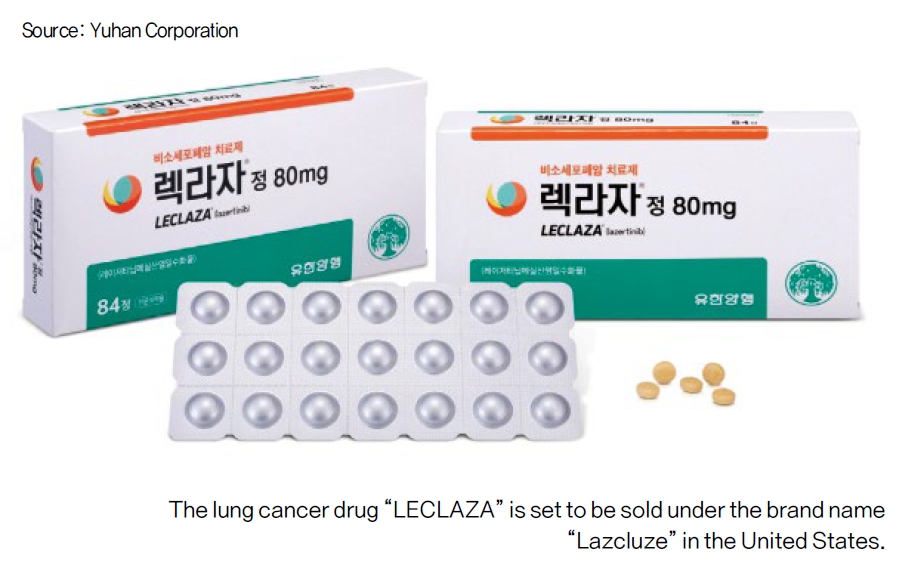Article at a GlanceThe reason Yuhan Corporation was able to license in and license out the first Korean-developed anticancer drug, LECLAZA, which received FDA approval for the treatment of lung cancer, and share the profits from its commercialization, is because of the open innovation strategy that has been pursued since 2015. Yuhan Corporation's 10 years of open innovation have been a process of eliminating decision-making bottlenecks within the organization and building trust with external partners. To foster distributed innovation that transcends boundaries, the company focused on transforming its internal structure by 1) breaking down silos between R&D and management, 2) adopting an open talent strategy, and 3) fostering internal entrepreneurship. Additionally, to connect and expand its knowledge base externally, Yuhan aligned its goals with its partners and built mutually beneficial relationships. This trust, carefully cultivated, became the foundation for maximizing information accessibility during technology acquisition and ensuring the company's interests were protected even after the transfer of technology.

It’s too early to celebrate. On August 19, 2024, Yuhan Corporation felt an even greater weight on its shoulders after receiving FDA approval for Korea’s first domestically developed lung cancer drug, LECLAZA (ingredient name: Lazertinib). Although it has broken through the high entry barriers of the anticancer drug market, Yuhan now faces the challenge of meeting market expectations to position LECLAZA as a blockbuster drug (with annual sales exceeding 1 trillion KRW), comparable to AstraZeneca's Tagrisso, which achieved sales of approximately 7.7 trillion KRW last year, its biggest competitor. How LECLAZA will break Tagrisso's dominance and reshape the lung cancer treatment market remains to be seen. However, Yuhan Corporation has long borne such burdens to meet the market's high expectations and stringent standards. This is because the founding philosophy of Yuhan’s founder, Dr. New Ilhan, who believed that "a company's life depends on its credibility," has not only elevated Yuhan's brand reputation but also acted as a regulatory system overseeing both organizational and individual behavior.
In fact, since Yuhan Corporation launched its open innovation initiative in 2015 with the declaration to “return to the core pharmaceutical business” and focus on new drug development, the past decade has been a continuous struggle to win the hearts of domestic biotech ventures as well as multinational pharmaceutical companies. The idea of compensating for the company's lack of internal innovation capacity by leveraging external resources was not entirely new, but success required a critical element—trust. The fact that Yuhan’s open innovation experiment bore fruit is evidence that the company has been walking a tightrope to maintain the difficult-to-gain but easily-lost trust with its partners.
The same was true in October 2018 when Yuhan Corporation first licensed out its new drug candidate for non-small-cell lung cancer
1
, Lazertinib, to Janssen Pharmaceuticals, a subsidiary of Johnson & Johnson, for 1.4 trillion KRW. The market hailed this as a successful case of open innovation, recognizing it as a process in which Yuhan discovered hidden gems from external biotech ventures and refined them into valuable assets. However, this was just the beginning. Continuous efforts followed to align the expectations and goals of both companies during the global clinical trials leading up to FDA approval.
In order for a domestic pharmaceutical company, with a relatively short history and limited experience in new drug development, to collaborate effectively with global pharmaceutical giants possessing immense capital and manpower, it had to reform not only its organizational structure and personnel but also its corporate culture. In a case study published in DBR Issue 270 on April 1, 2019, DBR examined Yuhan Corporation's open innovation, focusing on the five years of transformation from 2013, when the company first licensed in a new drug candidate, to 2018, when it licensed out the drug to a global pharmaceutical company. And at this point, when the results of this export have become visible and the product has reached commercialization, we once again met with Yuhan Corporation’s CEO Cho Wook-je and R&D President Kim Yeol-hong to track the changes over the past five years, during which this new drug completed its global clinical trials and achieved success. Based on this follow-up, the case study analyzes how the company crossed organizational and external boundaries over the span of 10 years and expanded its knowledge base to overcome the high barriers of the global anticancer market.
Copyright Ⓒ 동아비즈니스리뷰. All rights reserved. 무단 전재, 재배포 및 AI학습 이용 금지
